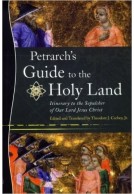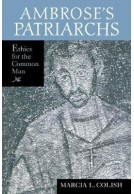Google Books previews are unavailable because you have chosen to turn off third party cookies for enhanced content. Visit our cookies page to review your cookie settings.
Politique (Paperback)
Languages of Statecraft Between Chaucer and Shakespeare
Imprint: University of Notre Dame Press
Pages: 298
ISBN: 9780268041144
Published: 31st May 2005
Script Academic & Professional
Pages: 298
ISBN: 9780268041144
Published: 31st May 2005
Script Academic & Professional
You'll be £5.95 closer to your next £10.00 credit when you purchase Politique. What's this?
+£4.99 UK Delivery or free UK delivery if order is over £40
(click here for international delivery rates)
Order within the next 1 hour, 3 minutes to get your order processed the next working day!
Need a currency converter? Check XE.com for live rates
(click here for international delivery rates)
Order within the next 1 hour, 3 minutes to get your order processed the next working day!
Need a currency converter? Check XE.com for live rates
In this book Paul Strohm shifts his recognized talent for textual and cultural analysis to the second half of the latter part of the fifteenth century, arguing that England experienced its own ""pre-Machiavellian"" moment between 1450 and 1485. These turbulent decades encouraged new pragmatic discussions of political policies of a sort not previously seen and not to be seen again until the middle of the sixteenth century. Strohm contends that England had no need to await the writings of Machiavelli to find its voice in matters of practical statecraft and political calculation. In support of this thesis, he analyzes a range of mainly vernacular fifteenth-century English political texts along with several contemporary writings from Burgundy, France, and Italy. The writers of these texts are unsentimental, shrewdly informed, and keenly concerned with political practice in the world. Intricately connected with this new discussion of worldly politics is a revised, and more hopeful, view of the individual's relation to Fortune and her operations. Emergent in the English fifteenth century is the possibility that the prudent prince can effectively ""Fortune-proof"" himself by the exercise of foresight and the qualities of vertue - a trait remarkably anticipatory of its Italian and Machiavellian counterpart, virtu. This view is introduced to England by the poet John Lydgate and flourishes in the second half of the fifteenth century. In addition to Lydgate, Strohm considers the imaginative accomplishments of other undercredited writers of the period, such as Fortescue, Pecock, Whethamstede, Warkworth, and the unnamed authors of Somnium Vigilantis, Historie of the Arrivall of Edward IV, and the Great Chronicle of London. He also offers an appreciation of the collective linguistic and symbolic endeavors of those in the fifteenth-century public sphere.
Other titles in University of Notre Dame Press...















